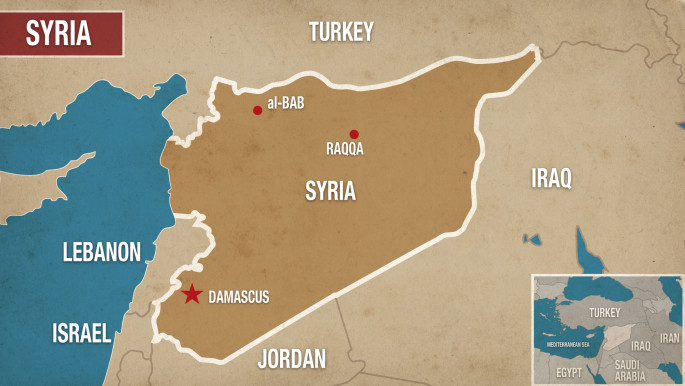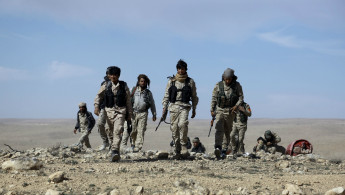Desperate IS flee as 'crumbling' Raqqa defences are 'refortified'
Barricades have been erected, landmines, and booby-trapped explosives have been planted, while suicide bombers are reportedly preparing for what could be their final showdown, according to the activist group Raqqa Is Being Slaughtered Silently.
The group - some of whose members have been killed by IS both in Syria, and in retributive attacks in Turkey - noted that fighters had dug trenches around the city and in areas it controls in the northern countryside, in comments to opposition site Zaman al-Wasl.
The US-backed, majority-Kurdish Syrian Democratic Forces (SDF) on Friday announced the launch of a new stage in ongoing operations, titled the "Wrath of the Euphrates", to liberate Raqqa from Islamic State group militants.
This stage will see SDF forces aim to liberate villages east of Raqqa and cut the city's connection with Deir az-Zour, located around 140 km to the south-east, where IS also have a presence.
As SDF forces close in on Raqqa, located on the banks of the Euphrates, the Pentagon said on Friday that IS administrators and bureaucrats had begun to flee the city.
"A lot of their administrators and bureaucrats now are beginning the process of leaving Raqqa and moving their operations further down river," said Pentagon spokesman Captain Jeff Davis, speaking to reporters.
 |
| Click to enlarge |
"So they have definitely taken note of the fact that the end is near in Raqqa and we are seeing now an exodus of their leadership."
The Pentagon spokesman said that the withdrawal appeared to be organised, and involve non-combatant "support people", but did not specify the number of IS members that had left the city.
Raqqa was home to 240,000 people before Syria's war broke out and was the first provincial capital to come under rebel control in March 2013, two years after a popular uprising against Syrian President Bashar al-Assad broke out.
Rebel forces were driven out of Raqqa in January 2014 by IS militants who quickly imposed their brutal, puritanical rule on the city.
Public executions have regularly been held in Raqqa while the city itself has been pummelled by airstrikes by the US-led coalition.
Advances on Raqqa come at a time when Iraqi forces appear close to routing the extremist group in the Iraqi city of Mosul, where operations began in October 2016.
Iraqi forces have taken control of east Mosul, with IS militants retreating, and now encamped in the west of the city, located around 470 km north-east of Raqqa.
In Syria, IS is being targeted by a variety of actors. In addition to the SDF backed by US airpower in Raqqa, the group is engaged in combat with the Syrian army and pro-Assad militias, supported by Russian airstrikes in Deir az-Zour.
It is also fighting Syrian rebels supported by Turkey in Aleppo.
At one stage in 2014, IS controlled territory totalling some 210,000 square km - roughly the size of the UK - straddling Syria and Iraq following a series of lightning advances.
However, the extremist group's territory is quickly shrinking having suffered serious reversals on the battlefield in 2016 both in Syria and Iraq with the exception of the retaking of the ancient Syrian city of Palmyra in December - for the second time in Syria's conflict.





 Follow the Middle East's top stories in English at The New Arab on Google News
Follow the Middle East's top stories in English at The New Arab on Google News
![The UAE is widely suspected of arming the RSF militia [Getty]](/sites/default/files/styles/image_330x185/public/2024-11/GettyImages-472529908.jpg?h=69f2b9d0&itok=Yauw3YTG)
![Netanyahu furiously denounced the ICC [Getty]](/sites/default/files/styles/image_330x185/public/2024-11/GettyImages-2169352575.jpg?h=199d8c1f&itok=-vRiruf5)
![Both Hamas and the Palestinian Authority welcomed the ICC arrest warrants [Getty]](/sites/default/files/styles/image_330x185/public/2024-11/GettyImages-2178351173.jpg?h=199d8c1f&itok=TV858iVg)